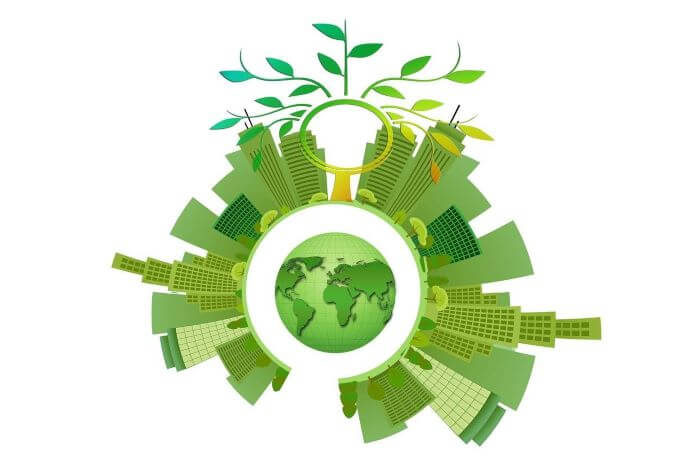Sustainability is something of a new concept in the world. However, it is fast becoming a priority amongst all industries. In 2015, the United Nations General Assembly passed a set of Sustainable Development Goals for 2030. It was an urgent call to action for global prosperity and environmental protection.
Nowadays, the world is facing an environmental crisis, and it is vital to change our behavior accordingly. Indeed Greta Thunberg, a famous Swedish activist, says that it is a matter of survival.
Therefore, we must learn how to preserve our limited resources and practice sustained living. That can only be possible if we practice sustainable living across all sectors. But what is sustainability?
Sustainability
Through sustainability, we attempt to bridge the gap between social sciences and the technology of the future. Therefore, it is not limited to renewable energy sources or protecting the environment. On the contrary, sustainability covers a broad range of topics with the end-goal of protecting the natural environment.
In short, sustainability is the science of maintaining the delicate balance of our ecosystem without compromising our lifestyle. Sustainable living is a priority of all employers. And in a globalized world, sustainability should apply at the local and global level for actionable change.
What Is A Sustainability Degree?
An online sustainability degree can open new career opportunities to you. But what does that mean, and how is it different from other degrees?
A sustainability degree teaches students techniques to support the ecological balance. It changes the way we do business and how we think about our lives. Not only do sustainable degrees teach you how to protect resources, but they also save money.
Furthermore, people are also practicing sustainable living as it is more efficient and cuts costs. It is an interdisciplinary degree, and it can be either a Bachelor’s in Arts or a Bachelor’s of Science. Some universities offer advanced master’s level degrees.
The good news is that there is a lot of positive growth in this career. According to the United States Bureau of Labor Statistics, the job sector will grow by 8% in the next ten years. Public interest in environmental problems is going to increase the demand for environmental specialists in the future. And as consumers try to make more ethical choices, businesses will hire more people with sustainability degrees. Therefore, employment is going to grow from 90,900 people to 98,000 people in 2029.
What Jobs Can A Person Get With A Sustainability Degree?
Due to the multidisciplinary nature of this degree, there are many jobs across different organizations. With a blend of environmental science and valuable business knowledge, you can get any job. They may work in the management sector or the local government.
According to data, the scientific and technical consulting services center employs 24% of all environmental sectors. They may work in the laboratories and spend time gathering data. Some of the common career choices for people with sustainability degrees are as follows:
#1: Sustainable Specialist
They address organizational issues in the sector by collecting data from samples of the air, soil, and water. They may analyze samples to assess the threat to environments and develop plans to solve them. They advise manufacturers on which chemicals to use and which to avoid. The median salary of a Sustainability Specialist is $69,040 per annum.
#2: Climate Change Analyst
They research the latest developments in climate change. Then, they study the effects of the changes on the ecosystem of the planet and offer feasible solutions. These solutions may be legislative recommendations, policy changes, or awareness programs. They make changes on a global or local level. The average salary of a Climate Change Analyst is $68,910.
#3: Supervisor of Production and Operating Workers
Plant and system operators supervise the activities of production. They have to deal with sensitive matters such as efficient waste management. Most of their work focuses on keeping industry practices compliant with legislation. Furthermore, the degree can be a launching pad for higher management positions in the manufacturing sector. The median salary in this role is $57,780.
#4: Urban Planners
They create policies to help communities develop infrastructure and manage environmental concerns. So, Urban Planners have to work with the government and the public to locate issues and solve them accordingly. They may also try to improve public transportation. The average starting salary for planners is $45,850. The approximate annual salary is $73,050, and this sector is going to grow by 5%.
#5: Hydrologists
Getting clean drinking water is a necessity of life. And hydrologists ensure that everyone is getting the right quality of water. They research better practices to make water more accessible to everyone. Some hydrologists even predict natural events by measuring the water level. According to research, hydrologists earn $81,270 per annum.
Most of these degrees require an undergraduate in sustainability. But many advanced professionals may also get certifications to climb the career ladder. Because of the interdisciplinary nature of the degree, graduates have to deal with many different scenarios. So they must have a mix of soft and technical skills to excel in their careers.
Since environmental scientists rely on scientific data, they must know how to analyze the data and apply results. Scientists must have excellent communication skills as they have to work with people from different sectors. Unless they communicate the issues and solutions clearly, they cannot bring real change. Most scientists face complex problems that require immediate attention. So, environmental scientists must think on their feet.
Work experience
A degree is not all that it takes to become an environmental scientist. Therefore, many ecological science programs offer internships to students so that they can get relevant work experience. Students may also sit for additional classes to improve their understanding of environmental sciences.
Licenses and certification:
Environmental scientists may get certifications to advance in their careers. One such institute is the Institute of Hazardous Materials Management.
The programs offered in this certifying course inform managers about the latest development in their field.
Conclusion
A degree in sustainability enhances many skills that are applicable across different sectors. Therefore, students can choose to go into different career paths according to their preferences. There is no set path in sustainability, so students can work in any sector they desire. Another advantage is that this sector is going to grow in the future.
As people understand the necessity of leading sustainable lives, the demand for environmental scientists will increase. Many companies are basing their corporate identity on sustainable development. And these changes will not only benefit the planet, but they will also affect their profits.
According to a report, sustainable carbon initiatives have an estimated $26 trillion effect on the global economy. The time to change is now!








